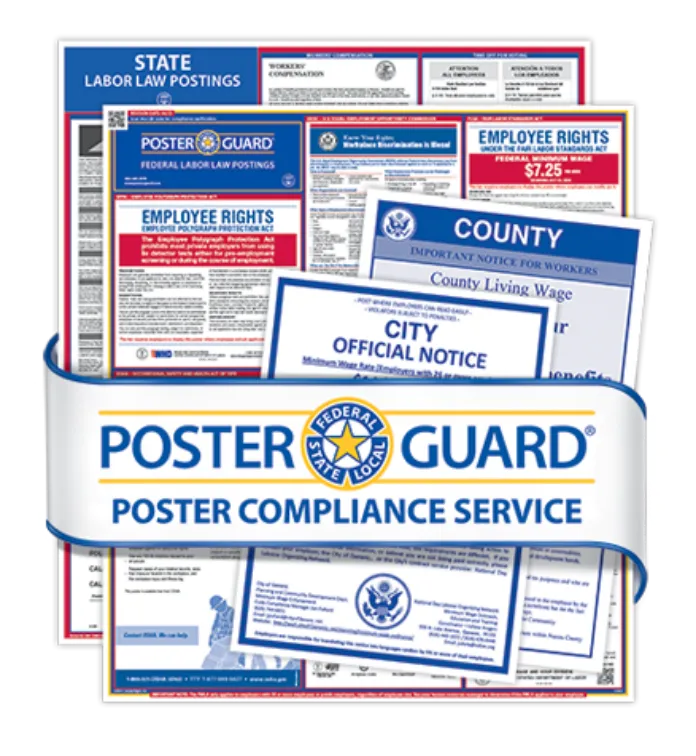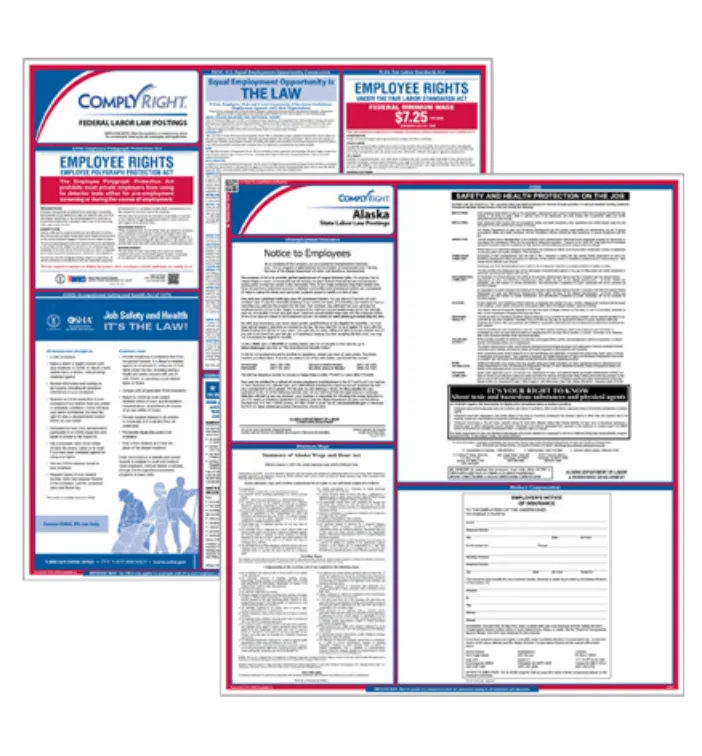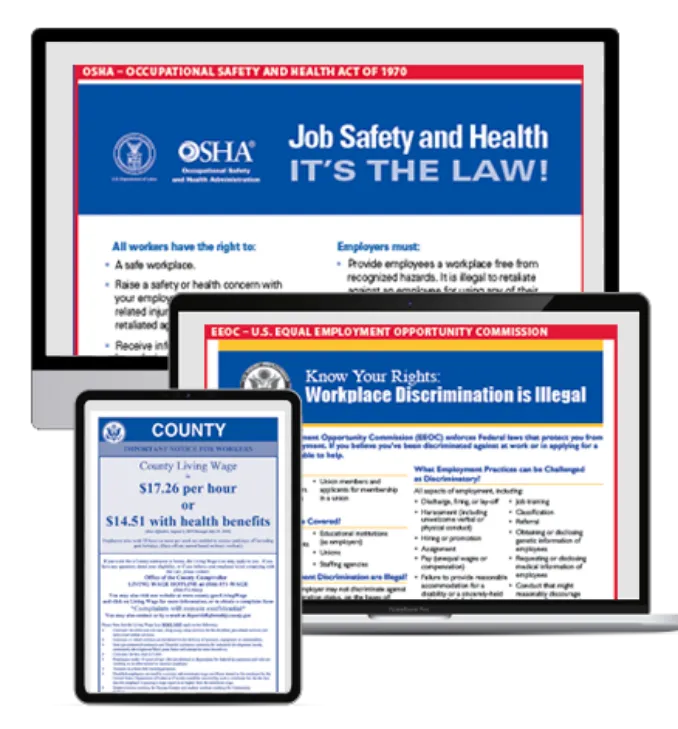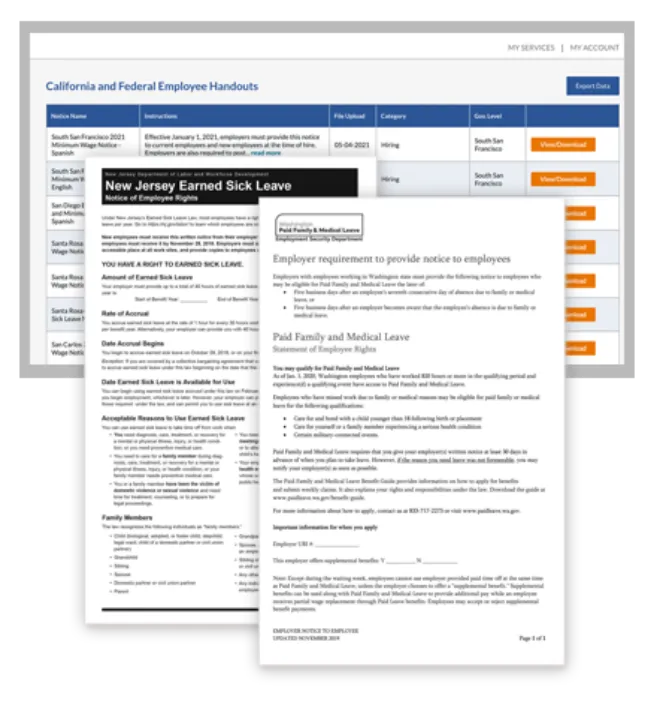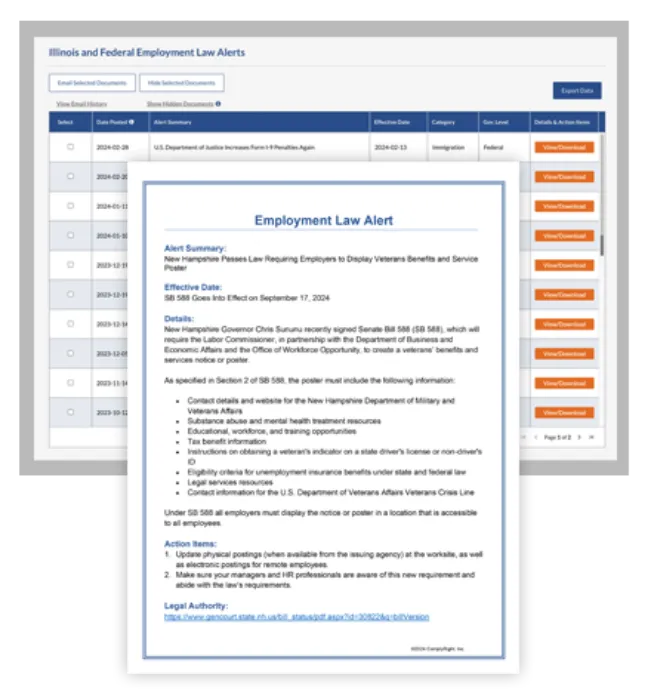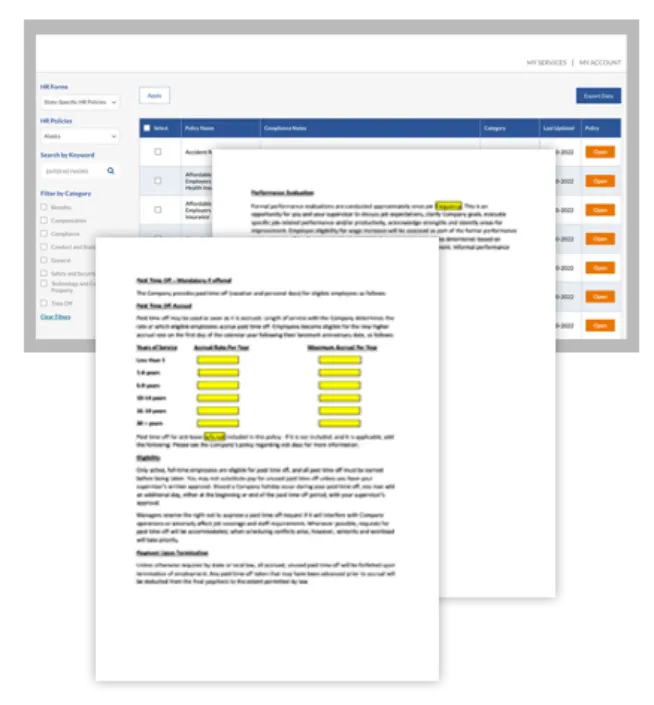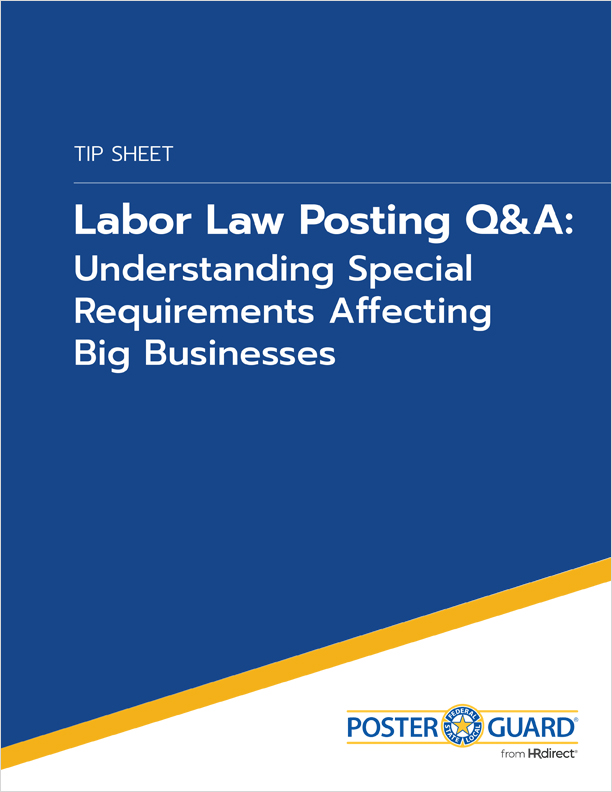Paid sick leave laws are continuing to gain ground across the country, with more states and localities stepping up to protect employees in the absence of a federal mandate. These laws not only provide crucial time off for health-related needs but also come with specific employer obligations, including mandatory postings and employee notifications.
Let’s look at the rising number of locations where paid sick leave is required — and how the shift toward more inclusive leave policies is impacting workplaces nationwide.
States, Counties and Cities with Mandatory Paid Sick Leave Laws
As of July 2025, 18 states (plus Washington, D.C.) have enacted their own paid sick leave laws:
- Arizona
- California
- Colorado
- Connecticut
- Illinois
- Maine
- Maryland
- Massachusetts
- Michigan (since February 2025)
- Minnesota
- Nevada
- New Jersey
- New Mexico
- New York
- Oregon
- Rhode Island
- Vermont
- Washington
- Washington, D.C.
Several additional states, including Alaska and Nebraska, are scheduled to implement similar laws later this year. As of July 14, the state of Missouri repealed it's paid sick leave law, the amended provisions take effect on August 28, 2025.
In addition, more than 22 cities and counties now have paid sick leave requirements:
- California: Berkeley, Emeryville, Los Angeles, Oakland, San Diego, San Francisco, Santa Monica, West Hollywood
- Illinois: Chicago, Cook County
- Maryland: Montgomery County
- Minnesota: Bloomington, Minneapolis, St. Paul
- New York: New York City
- Pennsylvania: Allegheny, Philadelphia, Pittsburgh
- Washington: Seattle, Tacoma
These local and state laws generally allow employees to accrue sick leave based on hours worked. Time off can be used for personal illness, medical appointments or caring for an ill family member. Many also include “safe time” provisions for survivors of domestic violence or sexual assault to seek related services.
Between 2017 and 2023, mental health-related leave of absence requests rose by an estimated 300%, with notable increases among women and younger employees.
Expanding Access to Mental Health Leave
While there’s currently no federal mandate requiring paid mental health leave, momentum is building at both the state and employer levels. Of the 18 states that have passed paid sick leave laws, some include provisions for mental health conditions — treating them with the same importance as physical health. Additionally, 13 states (plus Washington, D.C.) have enacted Paid Family and Medical Leave (PFML) programs that generally allow longer-term, partially paid leave for serious health conditions, including those related to mental health.
While the structure of these laws varies by location, most provide up to 12 weeks of partially paid leave. Wage replacement rates, eligibility rules and definitions of covered conditions differ from state to state, so it’s important for employers and employees alike to verify specific coverage details.
For those in states without paid sick leave or PFML laws, employer-provided benefits are playing a critical role. More organizations are now offering access to mental health services, expanding leave policies to explicitly cover mental health needs and investing in wellness programs that promote a healthier, more supportive work culture. These efforts not only help meet the mental health needs of today’s workforce but are also linked to improved productivity, higher engagement and better retention across industries.
Paid Sick Leave Now Covers Immigration Proceedings in Washington State
New in 2025, Washington State has taken an additional step toward inclusive leave protections by broadening what qualifies for paid sick leave. Effective July 27, 2025, employees may apply accrued sick time to attend their own or a family member’s immigration or citizenship proceedings — including related appointments, hearings and travel. This type of leave must be treated the same as other qualifying reasons, with no additional documentation required.
Washington is the first state to explicitly add immigration-related activities to its paid sick leave law, reflecting a growing recognition of family unity and immigrant worker protections. The change also signals a broader national focus on protecting workers’ rights around immigration status. In response, employers must ensure their paid sick leave policies and practices are reviewed and updated to reflect this expanded coverage.
Satisfy Mandatory Posting and Employee Notification Requirements
With paid sick leave laws expanding, employers must stay current with posting and notification rules. Nearly every state, city and county listed above requires official notices to be displayed in the workplace. Some even call for separate handouts to be distributed directly to employees when a leave event occurs.
Poster Guard® Poster Compliance Service offers complete coverage of federal, state and local posting requirements — plus timely updates to help employers maintain year-round compliance. The Mandatory Employee Handout Service also provides fast access to notifications required under employee leave laws and other labor regulations.

